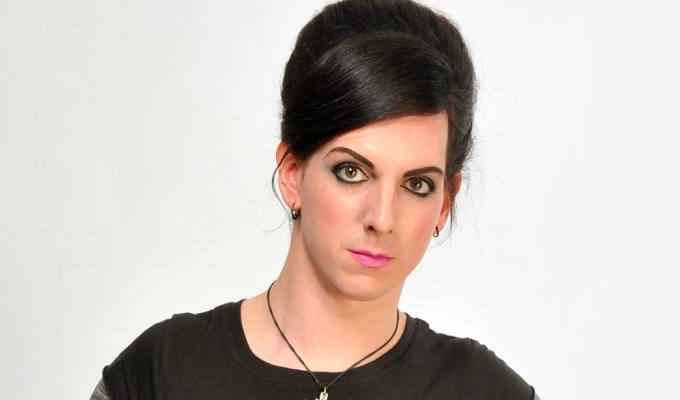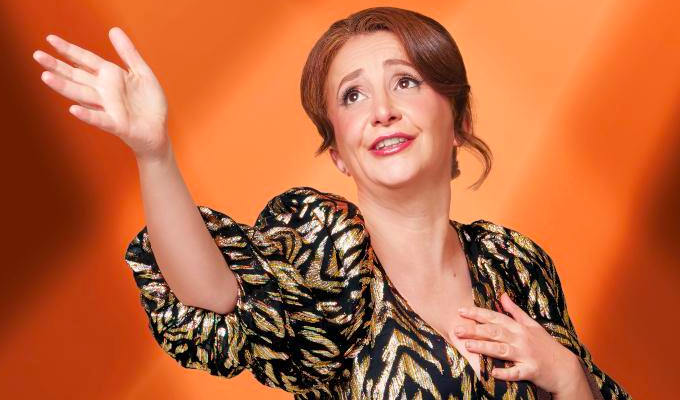'It's hard not to become the Chucke Brothers...'
Steve Coogan and Rob Brydon in A Cock And Bull Story
Late autumn light filters through the great oaks surrounding Felbrigg Hall in Norfolk, a little-known National Trust gem that is one of the most authentic 17th Century houses in the country, retaining much of its original furniture and decoration. Perfect for a cash-strapped film company trying to make a period piece without the money to dress any sets.It’s here that that some of the cream of British comedy, including Steve Coogan, Rob Brydon, Dylan Moran and Stephen Fry are making Tristram Shandy: A Cock And Bull Story, an adaptation of the experimental 1760s novel previously considered ‘unfilmable’.
The book, The Life and Opinions Of Tristram Shandy, Gentleman, was written by Yorkshire pastor Laurence Sterne and is remarkable for its structure. It starts as Shandy telling the story of his own life, but he becomes distracted, instead writing a stream-of-consciousness discourse on life, without really telling his story at all. The book included such eccentric techniques as a black page at the death of a character and blank pages to represent pages that have been torn out.
Director Michael Winterbottom, right, says that he decided to film the book because ‘even though it’s clever and arcane in lots of ways it’s funny and warm hearted too. It has a deliberate lack of shape; there’s no coherence and it’s full of diversions. But underneath all that it’s really just a daft, but heart-warming story about a bunch of people living in a house and behaving idiotically – something I thought could apply quite easily to a film set.
‘So much of the book was about the process of writing the book that the only way to mirror that was to do a film about making a film.’
So, back in Felbrigg Hall, the actors are finding things all very surreal. Benedict Wong, who plays a fictional assistant director, says: ‘I’ve got to the point where I don’t know who is in the film and who is working on it. Reality and fiction have overlapped each other and it’s like a black hole. If you’re standing too close you get sucked in.’
Like the New York Times journalist who came to interview Winterbottom and got a brief cameo. Or the fact that at one point a South Bank Show documentary crew were filming the real film crew filming the fictional DVD crew, filming Steve Coogan.
‘There were a couple of days that I had to remember which cameras were fake and which were real,’ admits Dylan Moran. ‘Everybody was mirroring the reality; you had actors being actors and actors being crew. And crew being actors. The whole thing became a hall of mirrors.’
The cast are lucky to be here at all, as money problems almost scuppered production. In June 2004, weeks before filming was due to begin, their finance fell through. Actors were signed up. The final script was ready. Locations had been scouted. The film-makers were faced with a stark choice: admit defeat and pull the plug or delay the project until more finance might be in place – at the risk of losing the actors to other projects.
Producer Andrew Eaton recalls calling the financiers on his mobile in the middle of a field in Norfolk. ‘I said, we’ve got Steve Coogan, Rob Brydon, Dylan Moran, Shirley Henderson, Stephen Fry and Mark Walliams on board. How can you not finance this project?’
But they refused to budge so the producers had to find other backers, which proved difficult. ‘Anything that plays with the form is difficult for financiers,’ said Eaton. ‘They like things to be fully formed, perfectly symmetrical, that hits all the points and has a happy ending.
‘We reached the point when I thought we weren’t going to make it. We had the cream of British comedy and a story that had the potential to be very funny - and nothing else.’
Eventually they went back to the BBC who had originally turned the project down. ‘At that point we were desperate. Most of our actors were from the BBC stable and they have been incredibly supportive of us in the past so we took another shot. They went for it.’
But the budget had to be slashed from £6.5 million to £2.8 million – and even then the finance wasn’t in place until three weeks into filming. Credit cards were busted for the daily ‘per diem’ payments and producers raided their savings to keep the project afloat. It’s a parallel with Lawrence Sterne, who also had to pay to publish Tristram Shandy himself when no one else would.
What has proved invaluable to the promotion of the film is Steve Coogan’s tabloid-fodder private life, which he has reluctantly spoken about in countless interviews to plug the movie and which Winterbottom was keen to exploit on screen.
Coogan plays not only Tristram Shandy and his father Walter, but also a fictionalised version of himself, full of insecurities and threatened by being exposed by the newspapers for a night of passion with a lapdancer – a storyline hitting very close to home for Coogan whose ‘kinky sex secrets’ have been splashed across many a front page.
‘Obviously, there are lot of things I know about Steve and the newspapers have published a lot about his personal life,’ says Winterbottom, who first worked with him on 24 Hour Party People.
‘Of course, this is a fictional Steve Coogan, but it’s more believable because we are using things people already know about him. He was very open to the idea to playing a bad version of himself, that’s one of the reasons why he is so brilliant to work with.’
‘Often the best place to source material is from the truth.’ says Coogan, left. ‘While I feel vulnerable about my private life being intruded on by the newspapers, using it in a drama like this, with a director I trust, has been away of exorcising my insecurities about it.
‘Comedy is best the closer to the bone it gets. And for those who know me this is pretty edgy, but it works for people who don’t know what is true and what isn’t. In America they don’t care about Steve Coogan but it still works as an insecure actor doing things he shouldn’t.
‘What I’ve learnt to do with Michael [and his improvisational way of working] is to be comfortable with the fact that I don’t know exactly what I am doing. And that’s OK. He doesn’t over-intellectualise and he doesn’t talk much. He trusts his instincts – which are usually right.’
Winterbottom and writer Frank Cottrell Boyce both read Tristram Shandy at school and had long wanted to adapt it for the screen. ‘Originally the idea was for a long-running sitcom,’ says producer Andrew Eaton. ‘Then three years ago, we decided to go for a film.’
Because of the unfilmable nature of the novel, when Cottrell Boyce had finished writing a straight adaptation he had only written 30 pages. ‘That was all the plot there was in 500 pages,’ says Eaton. ‘So much for a long-running sitcom. We couldn’t even stretch it to ninety minutes.’
This lack of material opened the way for the modern part of the film, which flips between the period Tristram Shandy piece and the film crew making it. ‘Originally we were going to alternate between the making of the film and the film within the film,’ says Winterbottom, ‘but then we thought we would be bolder and, at a certain point, have the actors walk off set for one night and have them go back on set the next morning. Then we simply had to decide what to put into that one night.’
Much of that revolves around the rivalry between Coogan and co-star Rob Brydon about their status in the film.
‘Many years ago we offered Rob the part of Tristram and Walter in the sitcom that never happened,’ said Winterbottom. ‘It was a good idea but he never got around to reading the book and we didn’t get around to writing the script. Then when we began casting for the film we knew Rob would make a great Uncle Toby.’
Brydon says: ‘In the period end of things I play Steve’s younger brother and I follow him around a lot saying, “Yes, Brother Walter, no Brother Walter.” It’s quite difficult not to become the Chuckle Brothers. But we’ve played it straight and true to the script. Then in the modern section we get the chance to improvise.’
‘In the book Uncle Toby always defers to Walter,’ says Winterbottom, ‘and the idea was that Rob would be really deferential to Steve in the modern section too, but Rob didn’t want to do that. It worked much better as Rob could really exploit the competitive, schoolyard rivalry that happens around comics.
‘We tried to draw on things that touch the truth so we brought the fact that they already have a relationship into the film.’
‘I always joke that I discovered him,’ says Coogan, whose production company Baby Cow launched Brydon’s career with the BBC Two comedy Marion and Geoff. ‘But he blossomed very quickly in his own right and then he got very comfortable with me very quickly and started taking the piss - in an affectionate way.
‘I knew it was going to be edgy with Rob. It would never have worked with anyone who was in the least bit deferential to me – and Rob definitely doesn’t feel that. He does things that are risky and uncomfortable and that makes for good comedy.
‘He has his way of improvisation and I have mine and it sort of works. I find him quite trying at times although I love what he does. I guess he’s like family, a younger brother, someone you love and respect and also find absolutely infuriating.’
Brydon said: ‘It’s been hugely enjoyable. There are similarities between Steve and I. We both started out doing voiceovers and impressions and then went into creating our own characters. And working with Michael has allowed us to be inventive which means that in normal conversations off-set we’re constantly finding new material and then putting it in the film.’
‘Steve and I find similar things funny. It’s a bit raw, a bit close to reality. We play up any little tensions or rivalries that aren’t really there but conceivably could be.’
Coogan agrees. ‘But Brydon talks much more than me. He talks a lot. Actually, he talks all the fucking time, doesn’t he? My thing is that he needs to be ‘on’ all the time and I don’t.’
Are you sure those tensions are really fictional?
* A Cock And Bull Story is released on Friday.
The Aristocrats was released on DVD on Monday. First published: January 17, 2006
Published: 22 Mar 2009






